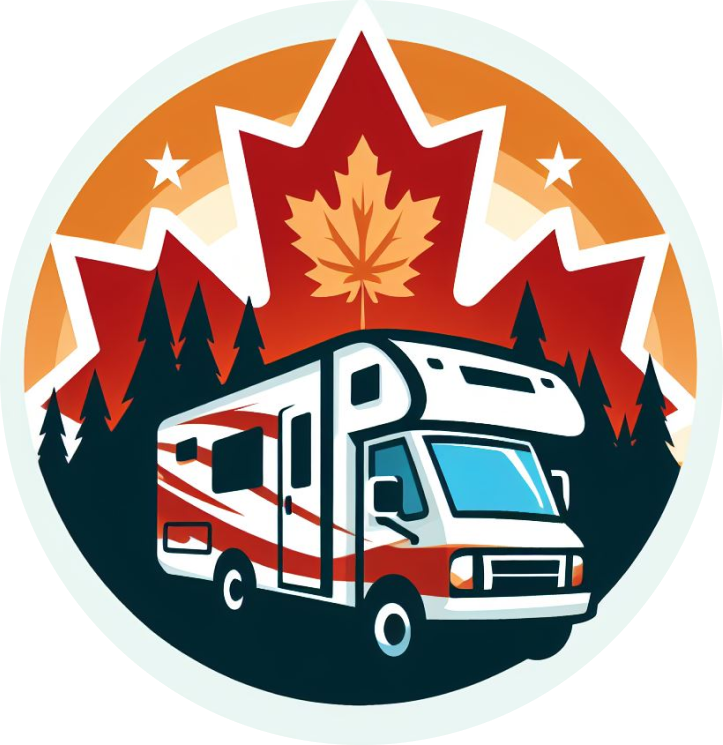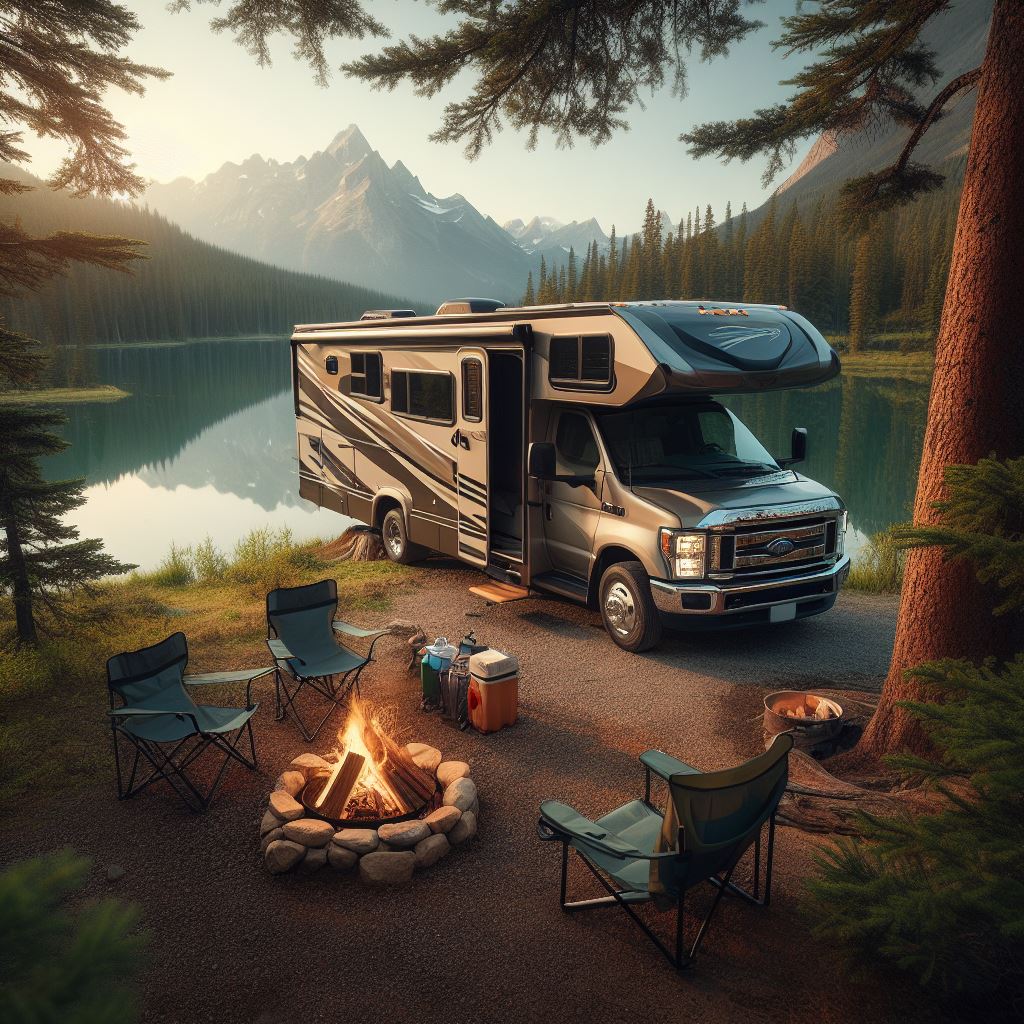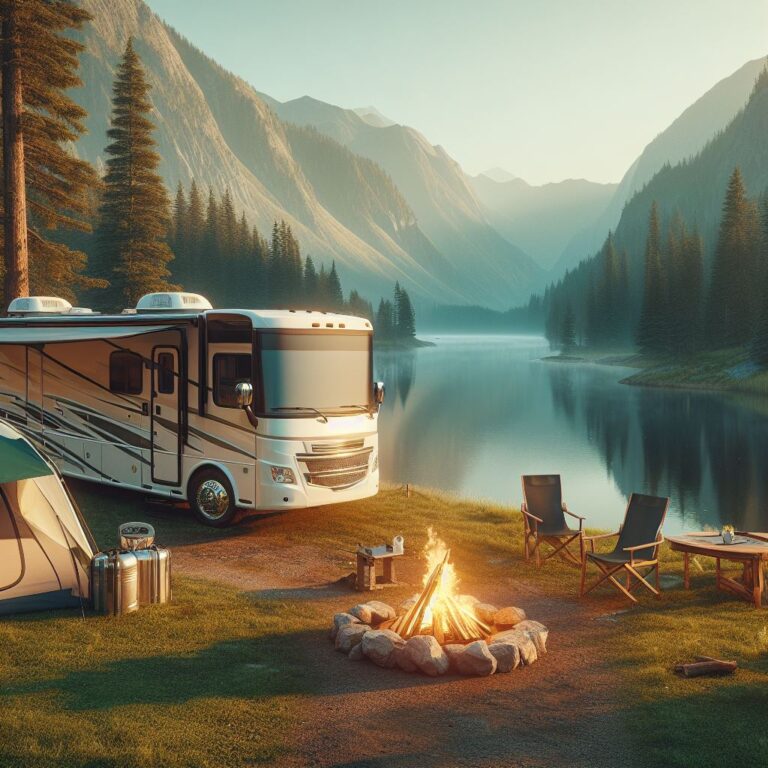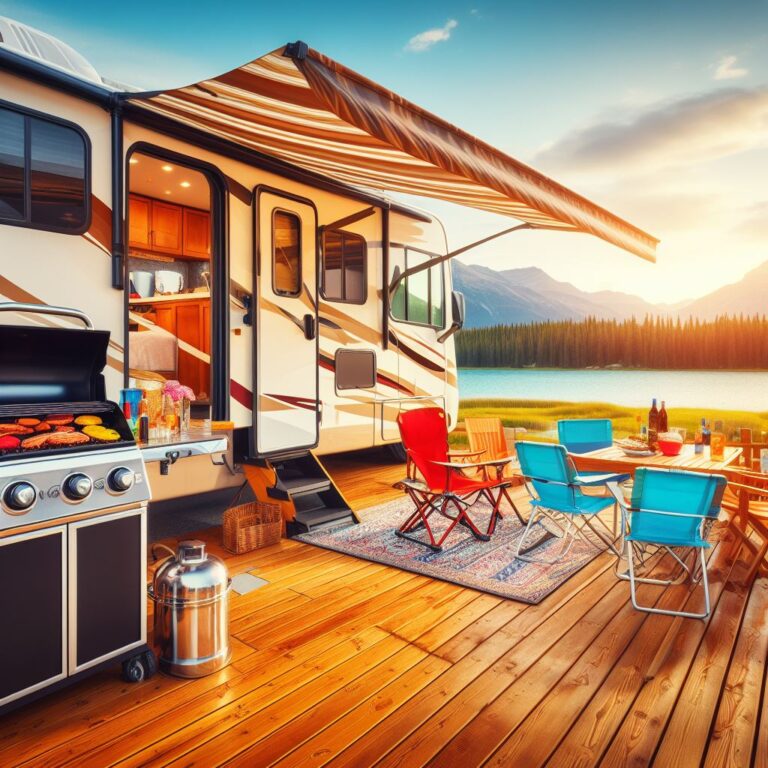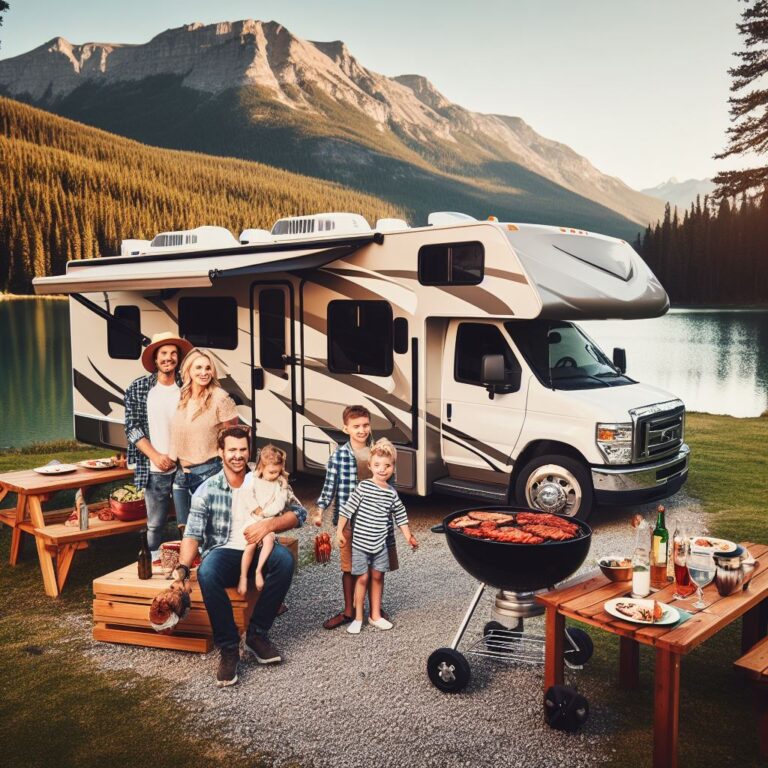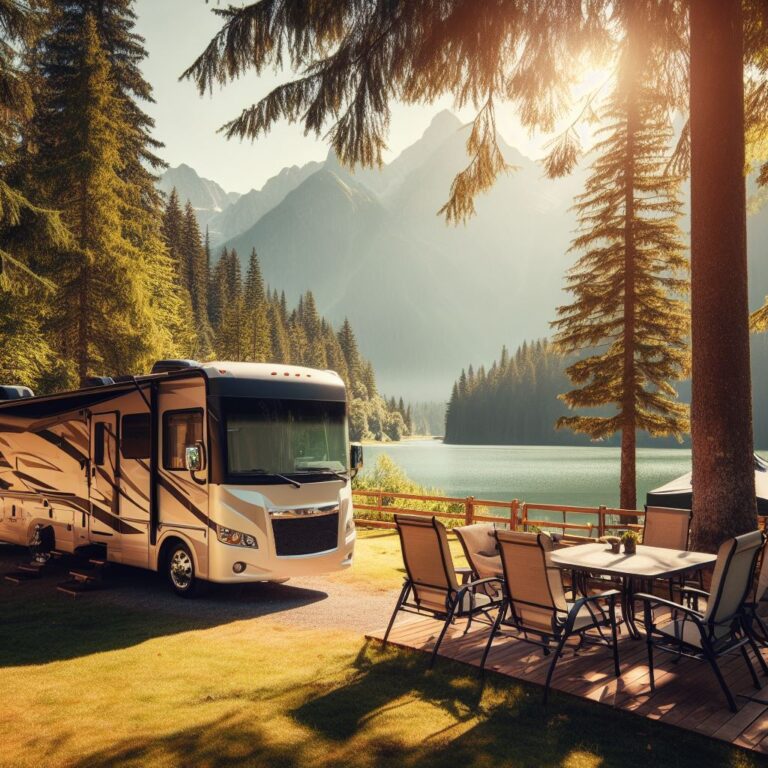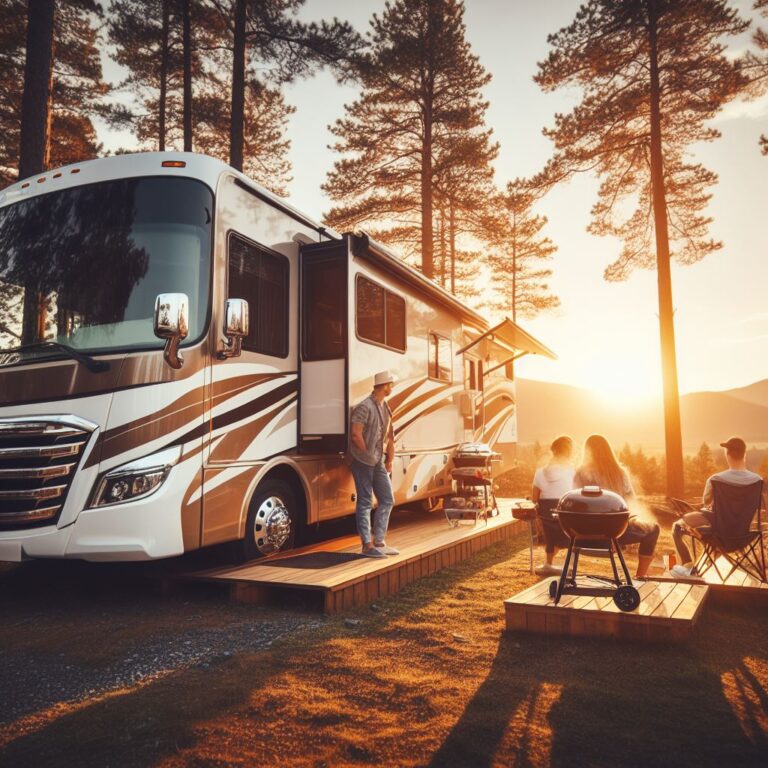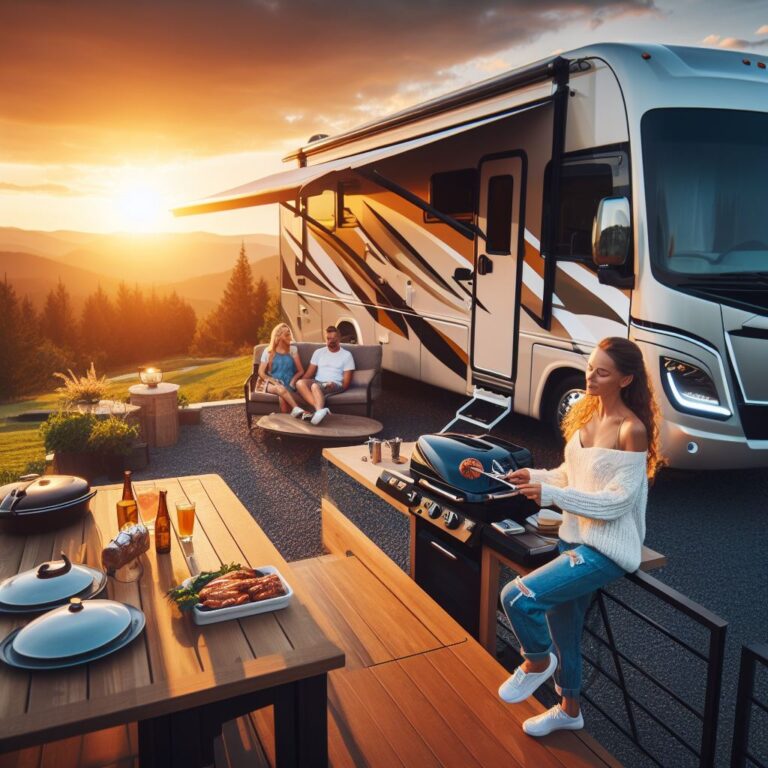Smyl R.V. Centre St. Paul AB
Smyl R.V. Centre
Smyl R.V. Centre 5115 – 44th St. St. Paul AB T0A 3A2 (780) 645-3035 http://www.smylrvcentre.com/
The Benefits of Owning an RV
There are numerous benefits to owning an RV that make it a popular choice among adventure enthusiasts and nature lovers. One of the primary advantages is the freedom and flexibility it offers. With an RV, you have the freedom to travel and explore different destinations at your own pace, without the need to worry about hotel reservations or flight schedules. You can simply pack up your belongings and hit the open road, stopping wherever and whenever you please. This flexibility allows you to discover hidden gems in off-the-beaten-path locations and create unforgettable memories along the way.
Another benefit of owning an RV is the opportunity to connect with nature. RV camping allows you to immerse yourself in the great outdoors and experience the beauty of nature firsthand. You can camp in national parks, state parks, or even campgrounds near lakes, rivers, or mountains. Waking up to stunning sunrises, enjoying campfires under starry skies, and breathing in the fresh air are just some of the experiences that RV owners get to enjoy regularly. It’s a chance to escape the hustle and bustle of city life and find tranquility in nature’s embrace.
Exploring the Different Types of RVs
When it comes to exploring the different types of RVs, there are a wide variety of options available to suit every kind of traveler. One popular choice is the Class A motorhome, which resembles a bus and offers spacious living and sleeping areas. These RVs often come equipped with luxurious amenities such as full-size kitchens, multiple bathrooms, and even washer/dryer units. Class A motorhomes are perfect for those who want to experience the comfort of a home on wheels.
For those seeking a more compact and maneuverable option, the Class B motorhome, also known as a camper van, is an excellent choice. These RVs are built on a van chassis and are smaller in size, making them easier to drive and park. While they may lack some of the amenities of larger RVs, they still offer comfortable sleeping quarters, a small kitchenette, and a bathroom. Class B motorhomes are perfect for solo travelers or small families who value flexibility and simplicity in their camping adventures.
Factors to Consider When Choosing an RV
When it comes to choosing an RV, there are several factors that you should consider to ensure that you make the right decision for your needs. One of the first things to think about is the size of the RV. RVs come in a range of sizes, from compact campervans to large motorhomes, so it’s important to choose one that matches your requirements. Consider how many people will be traveling in the RV and the amount of space you’ll need for sleeping, cooking, and living.
Another important factor to consider is your budget. RVs vary greatly in price, so it’s essential to set a budget before beginning your search. Take into account not only the initial cost of purchasing the RV, but also the ongoing expenses such as maintenance, insurance, and fuel. It’s also worth considering whether you want to buy a new or used RV, as this can make a significant difference in price. By carefully considering your budget, you can ensure that you find an RV that meets your needs without breaking the bank.
Essential RV Accessories for a Smooth Camping Experience
As a seasoned RV owner, there are several essential accessories that can greatly enhance your camping experience. One of the most important accessories to consider is a leveling kit. This handy tool ensures that your RV is level and stable, providing a more comfortable and safe environment while parked. Uneven ground can lead to a host of issues, such as a malfunctioning refrigerator or difficulty sleeping, so investing in a quality leveling kit is highly recommended.
Another essential accessory is a surge protector. RVs are equipped with electrical systems that are susceptible to power surges and fluctuations. A surge protector acts as a safeguard, protecting your RV’s electrical system from potential damage caused by sudden power spikes. This not only extends the lifespan of your RV’s appliances and electronics but also provides peace of mind knowing that your investment is well-protected. So, before embarking on your next camping trip, make sure to equip your RV with these essential accessories for a smooth and worry-free experience.
Tips for Proper RV Maintenance and Care
Proper maintenance and care are essential for keeping your RV in top condition and ensuring a smooth and enjoyable camping experience. Regularly inspecting and cleaning your RV is a crucial part of maintenance. Start by checking the exterior for any signs of damage or wear, such as cracks, leaks, or peeling paint. Make sure to pay attention to the roof as well, as it is prone to damage from UV rays and debris. Clean the exterior thoroughly, removing any dirt or grime, and don’t forget to wash the windows and wheels too. Inside the RV, inspect the plumbing system, electrical connections, appliances, and furniture. Regularly clean and sanitize the water tanks, and check for any leaks or issues with the plumbing. Additionally, inspect the battery, replace it if needed, and test all electrical systems. Properly maintaining your RV will help prevent any unexpected issues during your trips and extend the lifespan of your vehicle.
In addition to regular inspections and cleaning, it’s important to winterize your RV if you plan on storing it during the colder months. This involves draining all water from the plumbing system, disconnecting the battery, and sealing any openings to prevent critters from entering. It’s also a good idea to cover your RV to protect it from the elements. When you’re ready to hit the road again, properly de-winterize your RV by flushing out the plumbing system and reconnecting the battery. Remember to regularly check tire pressure, change the oil, and service the engine to keep your RV running smoothly. By taking the time to properly maintain and care for your RV, you’ll be able to enjoy countless adventures on the open road.
Planning an RV Trip: Choosing the Right Destination
When it comes to planning an RV trip, choosing the right destination is one of the most important factors to consider. The destination will determine the entire experience of your trip, from the sights you see to the activities you can enjoy. Whether you prefer scenic mountains, coastal beaches, bustling cities, or peaceful campgrounds, there is a destination out there that will suit your preferences.
To choose the right destination for your RV trip, start by considering the interests of everyone in your travel group. Do you enjoy outdoor adventures like hiking and fishing, or are you more interested in cultural attractions and historical sites? Consider the amenities and facilities you prefer at your destination, such as full hook-up RV parks, on-site activities, or proximity to popular tourist spots. Additionally, think about the distance you are willing to travel and the time you have available for your trip. By taking these factors into account, you can narrow down your options and find the perfect destination that will make your RV trip an unforgettable experience.
How to Save Money on RV Travel
When it comes to saving money on RV travel, there are several strategies and tips that can help you stay within your budget. First and foremost, planning ahead and being flexible with your travel dates can make a big difference in cost. Booking campsites or RV parks in advance can often secure lower rates, especially during the off-peak seasons. Additionally, opting for public campgrounds or boondocking sites can significantly reduce your accommodation expenses. These options may not provide all the amenities of a resort, but they offer a more cost-effective way to enjoy nature and the RV lifestyle. Moreover, taking advantage of discounts and memberships, such as AAA or Good Sam, can provide savings on campground fees, fuel, and even attractions or entertainment along your journey. By exploring these options and being mindful of your expenses, you can ensure a more affordable and enjoyable RV travel experience.
Another way to save money on RV travel is by being mindful of fuel consumption. RVs are notorious for their lower gas mileage, so planning your routes to minimize distance and avoid unnecessary detours can help save on fuel costs. Additionally, maintaining a steady speed and avoiding excessive acceleration or braking can also contribute to fuel efficiency. Utilizing apps or websites to locate the cheapest fuel stations along your route can further help you save money. Moreover, packing and preparing your own meals in the RV instead of dining out can make a significant impact on your budget. Investing in a well-equipped kitchenette and planning your meals in advance can help you save on restaurant bills and enjoy home-cooked meals while on the road. By implementing these strategies and being mindful of your fuel and food expenses, you can enjoy the freedom of RV travel without breaking the bank.
Understanding RV Insurance: What You Need to Know
Whether you’re a seasoned RV owner or just starting out on your RV adventures, understanding RV insurance is essential. An RV is not just a vehicle; it’s a home on wheels, and protecting it is crucial. RV insurance provides coverage for both your vehicle and your personal belongings inside. It also offers liability coverage in case of accidents or injuries that may occur while using your RV.
When considering RV insurance, it’s important to understand the different types of coverage available. The most common types include liability coverage, which protects you in case you cause damage to someone else’s property or injure someone, and collision coverage, which pays for damages to your RV in the event of an accident. Comprehensive coverage is also highly recommended, as it protects against theft, vandalism, and natural disasters. Additionally, uninsured/underinsured motorist coverage can provide financial protection if you’re involved in an accident with someone who isn’t adequately insured. Understanding the various coverage options and their importance will help you make an informed decision when choosing an RV insurance policy.
RV Financing Options: Making Your Dream RV a Reality
One of the most important aspects of making your dream RV a reality is finding the right financing option. With the wide range of RVs available in the market, there are also various financing options that cater to different budgets and needs. Before you begin your search for an RV, it is essential to consider your financial situation and determine how much you can afford to spend on your dream RV.
Banks and credit unions are often the go-to options for RV financing. These financial institutions offer loans specifically designed for RV purchases, with competitive interest rates and flexible payment plans. It is crucial to shop around and compare offers from different lenders to find the best terms and conditions that suit your budget. Additionally, some dealerships also offer in-house financing options, which can be convenient for those who prefer a one-stop-shop experience. Whichever financing option you choose, make sure to thoroughly review the terms and conditions, including interest rates, loan duration, and any additional fees involved. By carefully considering your financing options and finding a solution that aligns with your budget, you can make your dream RV a reality while ensuring a financially secure future.
Joining the RV Community: Finding Resources and Support
Joining the RV community can be an exciting and rewarding experience, opening up a world of adventure, camaraderie, and support. As a new RV owner, it’s important to find resources and support that can help you navigate this new lifestyle. One valuable resource is online RV forums and communities, where you can connect with fellow RV enthusiasts, ask questions, and share experiences. These platforms provide a wealth of knowledge and advice, whether you’re looking for campground recommendations, troubleshooting tips, or simply seeking like-minded individuals to connect with.
In addition to online communities, there are several RV clubs and associations that offer a wide range of benefits for their members. These organizations often provide access to discounts on campgrounds and RV parks, educational resources, and organized events where you can meet and interact with other RV enthusiasts. Joining a club or association can help you build connections and friendships with people who share your passion for RVing, and offer a sense of camaraderie and support that enhances your overall RV experience. Whether you prefer a general RV club or one that specializes in certain interests, such as boondocking or vintage RVs, there is likely a group out there that aligns with your interests and can provide a sense of community and belonging.
- How To Choose TIPHOPE RV Accessories - February 10, 2024
- How To Choose Joinfworld RV Accessories - February 10, 2024
- How To Choose Conntek RV Accessories - February 9, 2024
